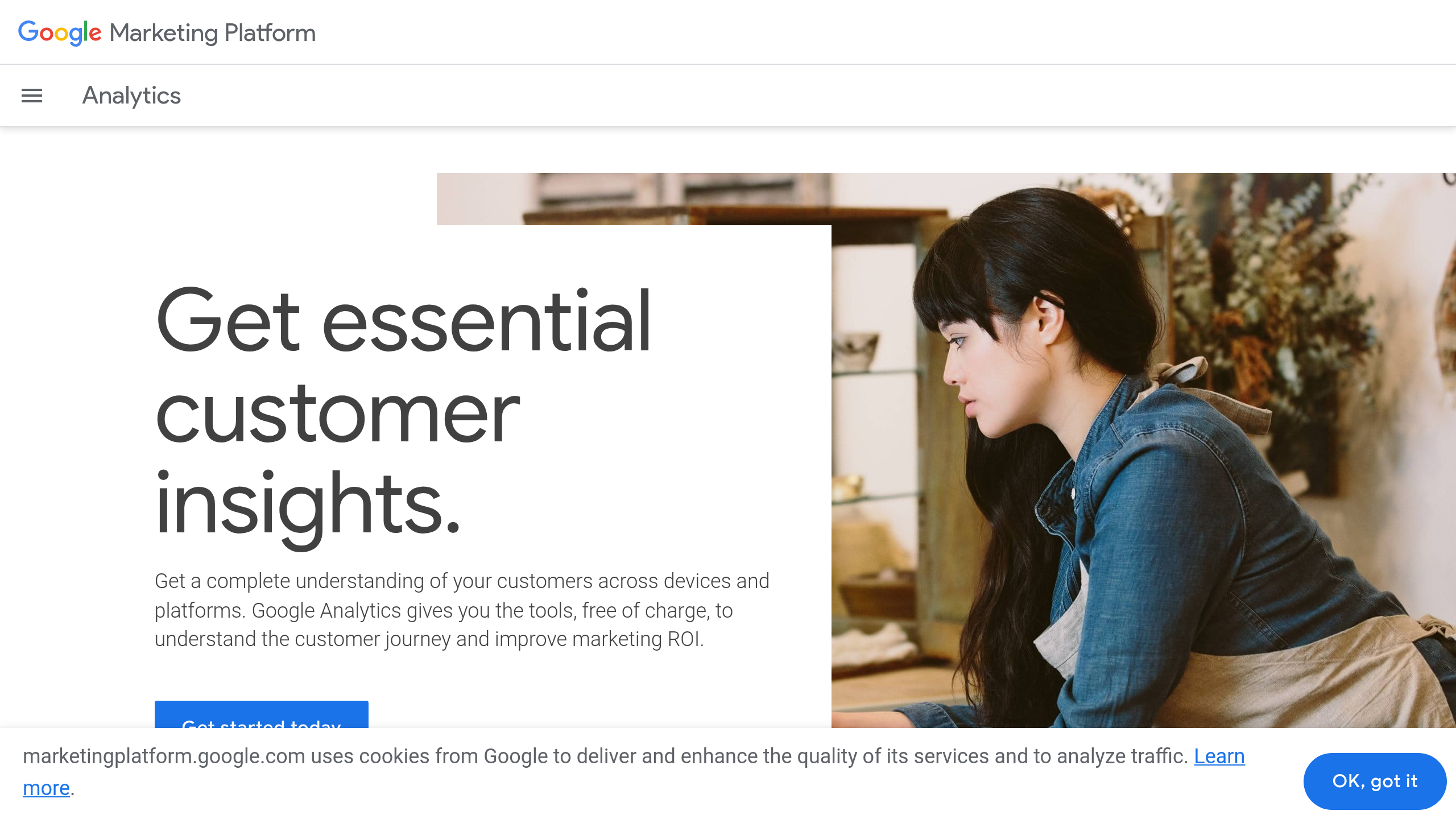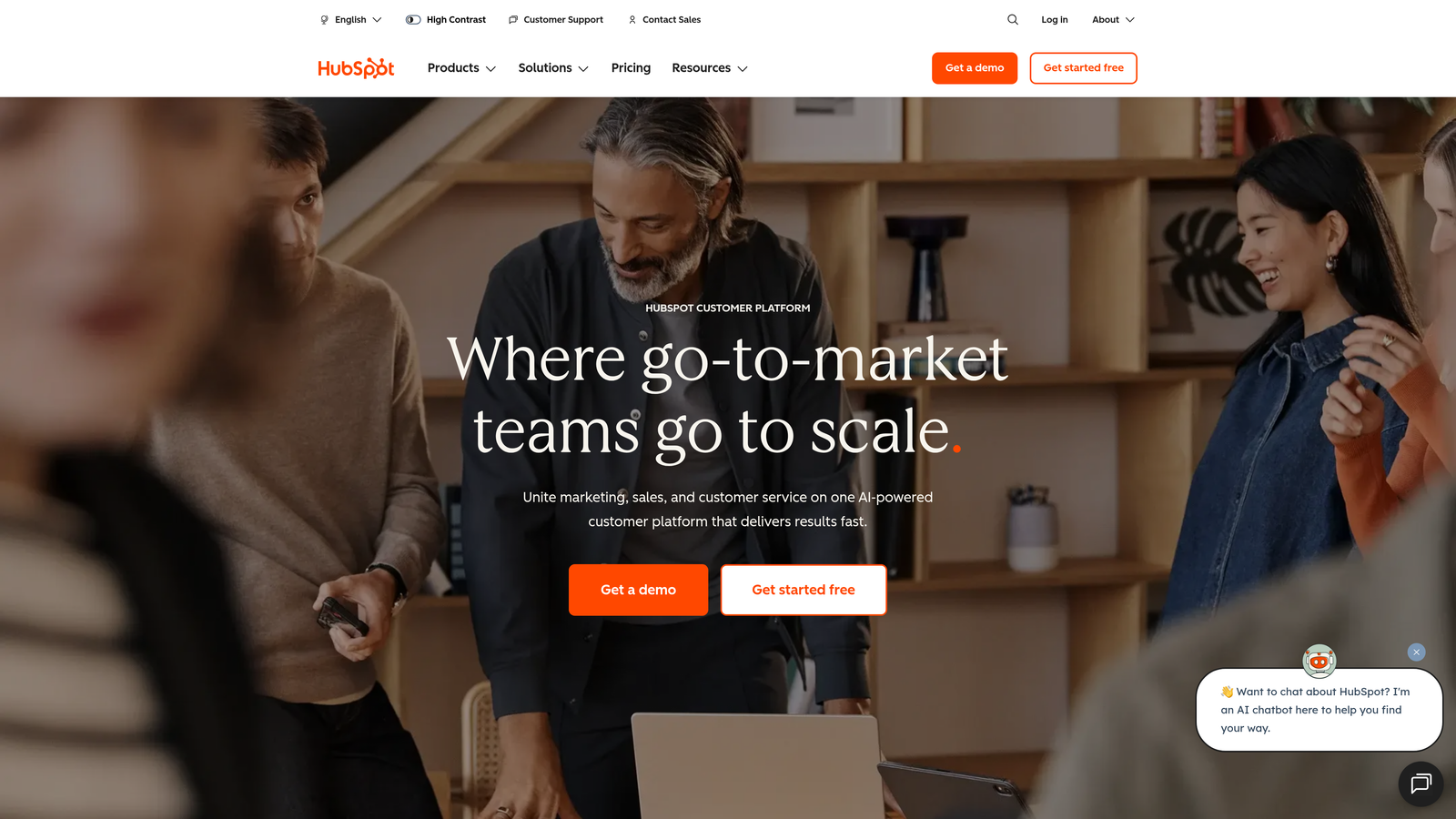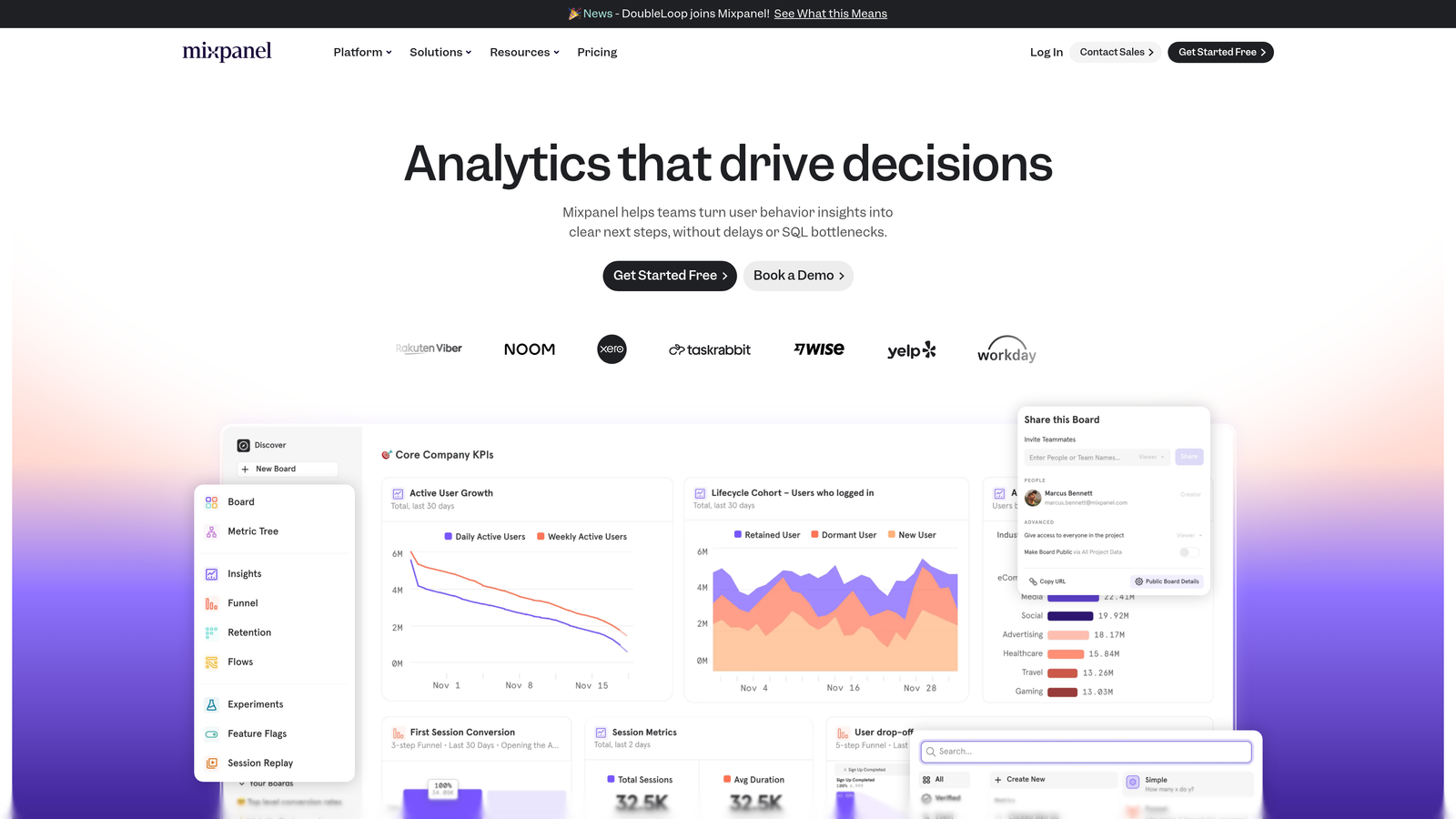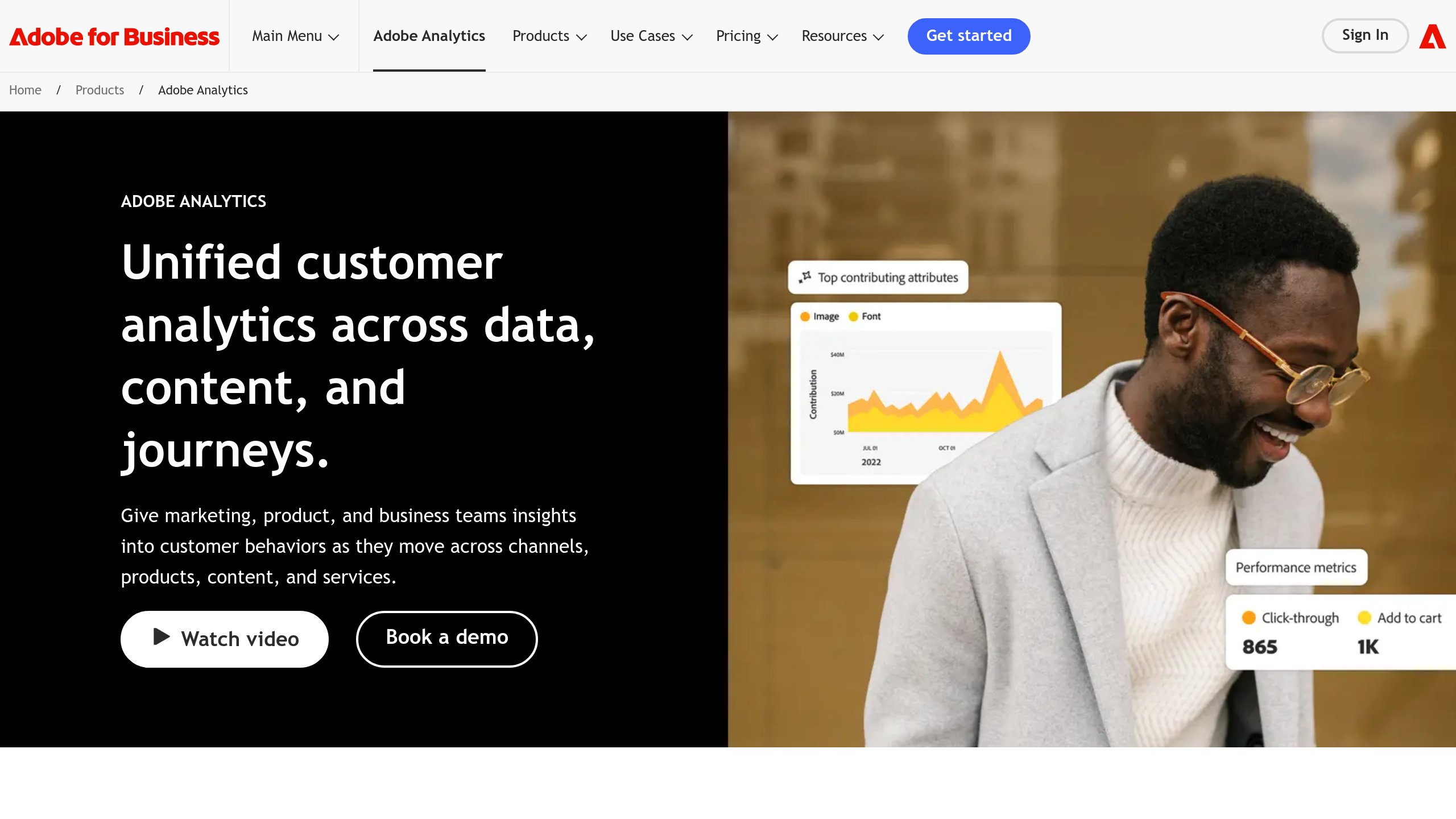Imagine you're a marketing professional trying to prove the effectiveness of your campaigns, but the data is a jumbled mess. You see traffic pouring in from various channels, but when it comes to conversions, the picture is hazy. It's a frustrating scenario many marketers face, especially as the digital landscape becomes increasingly complex. With data silos and a lack of integration across platforms, understanding which channels truly drive results can feel like searching for a needle in a haystack. This is where marketing channel attribution software comes into play. By effectively tracking and analyzing your marketing efforts, these tools help clarify your ROI and inform better decision-making. By the end of this article, you’ll know exactly how to choose the right tool to enhance your marketing strategy and optimize your budget allocations. Let's dive into the top 5 marketing channel attribution tools that can help you unravel the complexities of your marketing data.
Best for: Real-time AI-driven optimization for marketing campaigns.
Cometly is a comprehensive marketing attribution solution that captures every touchpoint in the customer journey.

Overview & Background: Cometly stands out in the crowded field of marketing attribution tools with its AI-driven capabilities. Its real-time data analysis provides marketers with actionable insights, allowing them to optimize campaigns on the fly. This tool is designed for marketing professionals who want to take control of their attribution strategy and understand how each channel contributes to overall performance.
Key Features:
1. Multi-Touch Attribution: Cometly uses advanced algorithms to provide a holistic view of customer interactions, helping businesses understand the journey from first awareness to conversion.
2. AI-Driven Recommendations: The platform offers intelligent suggestions for optimizing ad spend based on past performance and predictive analytics.
3. Seamless Integration: Cometly integrates with a variety of marketing platforms, ensuring that all data is consolidated in one place for easy analysis.
4. Real-Time Reporting: Users can access live dashboards that visualize campaign performance, allowing for immediate adjustments.
5. User-Friendly Interface: The intuitive design makes it easy for marketers of all skill levels to navigate and utilize the software effectively.
How It Works: Cometly collects data from various channels and unifies it into a single dashboard, providing users with a clear view of their marketing effectiveness. The software's AI capabilities analyze past performance to suggest future strategies, effectively guiding marketers in their decision-making.
Pricing & Plans: Cometly offers tiered pricing, starting with a free demo for new users. Paid plans provide advanced features tailored to growing businesses.
Why It's Great for Marketing Professionals: By utilizing Cometly, marketers can gain confidence in their data accuracy and make informed decisions that drive conversions. The ability to see every touchpoint means no more guesswork—just actionable insights that can be implemented immediately.
Best for: Comprehensive website traffic and behavior analysis.
Google Analytics provides powerful tools for tracking user interactions and conversion paths.

Overview & Background: As one of the most widely used analytics platforms, Google Analytics offers a robust set of features for marketers. It helps businesses track website traffic, measure user engagement, and analyze conversion rates. Whether you're a small business or a large enterprise, Google Analytics can provide the insights you need to optimize your marketing strategy.
Key Features:
1. Goal Tracking: Set specific goals for your website, such as newsletter sign-ups or product purchases, and track their performance.
2. Funnel Visualization: This feature allows you to see how users navigate your site, helping identify bottlenecks in the conversion process.
3. Audience Segmentation: Google Analytics enables you to segment your audience based on behaviors, demographics, and interests, providing deeper insights into your target market.
4. Custom Reporting: Users can create tailored reports to focus on the metrics that matter most to their business.
5. Integration with Google Ads: Link your Google Ads account to see how your advertising efforts translate into website traffic and conversions.
How It Works: Google Analytics operates by placing a tracking code on your website. This code collects data about user interactions, which is then processed and displayed in a user-friendly dashboard. Marketers can analyze this data to improve their website and marketing strategies.
Pricing & Plans: Google Analytics is free to use for most features, with premium options available for larger organizations that require advanced capabilities.
Why It's Great for Businesses of All Sizes: The extensive features offered by Google Analytics make it an essential tool for any marketer. Its ability to track and analyze user behavior helps businesses make data-driven decisions that enhance performance and ROI.
Best for: Integrated marketing and sales platform.
HubSpot provides an all-in-one solution for inbound marketing and sales analytics.

Overview & Background: HubSpot has established itself as a leading platform for inbound marketing and sales. It integrates various tools necessary for executing effective marketing strategies, including CRM, email marketing, and analytics. This all-in-one approach simplifies the marketing process and enables teams to work efficiently.
Key Features:
1. Lead Tracking: HubSpot allows users to track leads through the sales funnel, helping marketers understand customer behavior at every stage.
2. Campaign Performance: The platform provides insights into the performance of marketing campaigns across different channels.
3. Reporting Tools: Users can generate detailed reports that analyze key metrics, helping refine marketing strategies over time.
4. Email Automation: Automate email marketing campaigns based on user behavior to increase engagement and conversions.
5. User-Friendly Interface: The intuitive design of HubSpot makes it accessible for marketers of any skill level.
How It Works: HubSpot collects data from various marketing efforts and integrates it into a single dashboard. This holistic view allows users to track the entire customer journey, from initial contact to conversion, and optimize their marketing strategies accordingly.
Pricing & Plans: HubSpot offers a free tier with basic features, while paid plans provide advanced functionalities tailored to specific business needs.
Why It's Great for Small to Medium-Sized Businesses: HubSpot's integration of multiple marketing tools into one platform simplifies workflow and enhances efficiency, making it an ideal choice for businesses looking to streamline their marketing efforts.
Best for: Product analytics and customer engagement insights.
Mixpanel specializes in understanding user behavior and optimizing product performance.

Overview & Background: Mixpanel is designed to help businesses track user interactions with their products. By focusing on product analytics, it provides insights that help teams improve user experience and engagement. This tool is particularly valuable for SaaS companies and product teams looking to understand customer behavior deeply.
Key Features:
1. Event Tracking: Mixpanel allows users to track specific events, providing insights into user actions that lead to conversions.
2. Retention Analysis: Analyze how often users return to your product, helping identify areas for improvement.
3. A/B Testing: Experiment with different features or messaging to see what resonates best with your audience.
4. Cohort Analysis: Understand how different groups of users behave over time, helping tailor marketing strategies.
5. Customizable Dashboards: Users can create dashboards that focus on metrics that are most relevant to their goals.
How It Works: Mixpanel collects data through event tracking, allowing users to analyze how customers interact with their products. This data is then visualized in dashboards that provide actionable insights.
Pricing & Plans: Mixpanel offers a free tier for basic features, with pricing that scales based on usage for advanced capabilities.
Why It's Great for SaaS and Product Teams: By focusing on user engagement metrics, Mixpanel enables teams to make informed decisions that enhance product performance and improve customer satisfaction.
Best for: Advanced analytics for enterprise-level businesses.
Adobe Analytics offers robust tools for in-depth data analysis and customer insights.

Overview & Background: Adobe Analytics is known for its powerful capabilities tailored to large enterprises. It provides advanced analytics tools that help marketers understand complex customer journeys and optimize marketing strategies accordingly.
Key Features:
1. Predictive Analytics: Leverage machine learning to predict future user behavior based on historical data.
2. Real-Time Data Processing: Access immediate insights into customer interactions, allowing for quick decision-making.
3. Segmentation and Targeting: Create detailed segments for personalized marketing efforts that resonate with specific audiences.
4. Cross-Channel Attribution: Understand how various marketing channels contribute to overall performance, enabling better budget allocation.
5. Comprehensive Reporting: Generate detailed reports that provide insights into key performance indicators across different campaigns.
How It Works: Adobe Analytics collects data from multiple channels and processes it in real-time. This allows users to create detailed reports and dashboards that visualize performance metrics.
Pricing & Plans: Adobe Analytics offers customized pricing based on specific business needs, making it a premium option for enterprises.
Why It's Great for Large Enterprises: The advanced features and capabilities of Adobe Analytics make it ideal for businesses with complex marketing needs, providing the tools necessary to optimize performance and improve ROI.
Choosing the right marketing channel attribution software can make a significant difference in your marketing success. Each of the tools discussed here—Cometly, Google Analytics, HubSpot, Mixpanel, and Adobe Analytics—offers unique strengths that cater to different business needs.
When selecting a tool, consider factors like your budget, the specific features that align with your marketing strategy, and the level of support you’ll need. Whether you’re a small business looking for an all-in-one solution or a large enterprise needing advanced analytics, there’s a tool out there for you.
Ready to transform your marketing strategy? Get your free demo today and see how marketing channel attribution software can help you optimize your campaigns for better results.
Learn how Cometly can help you pinpoint channels driving revenue.
.svg)
Network with the top performance marketers in the industry